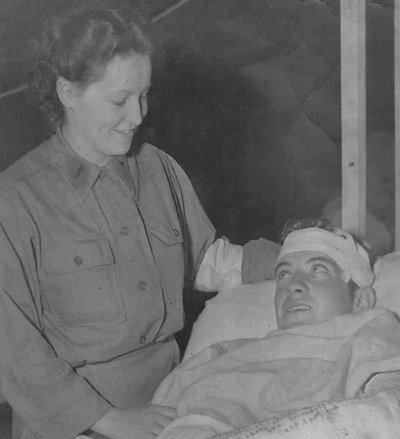April 6, 2006
A culture of giving back: Nursing school shines in faculty/staff/retiree campaign
Perhaps it’s not surprising that the UW’s top-rated School of Nursing is also a leader in philanthropy.
Thus far, the school is among the leaders in per capita gifts to the UW Faculty/Staff/Retiree Campaign for Students. According to donors, the gifts are emblematic of a culture that values “giving back.”
“There’s a tradition here. We see giving back as part of our professional responsibility,” says Sue Woods, professor of biobehavioral nursing and health systems and associate dean for academic programs.
Woods is giving back by honoring a towering figure in the school and long-time mentor to generations of nurses and educators. Susie Mansfield, who died in 2003, taught in the School of Nursing from 1951 to 1979.
“She was a trailblazer in cardiovascular clinical nursing research,” Woods says. “She began a legacy, which is carried on by generations of students here, of asking important clinical questions and then answering them through research. She was conducting nursing research before it was popular and became an early nurse scholar.”
Woods and her colleague Sandy Motzer, associate professor and vice associate dean of academic services, have created endowed fellowships that honor Mansfield. “This is something she would have wanted us to do,” Woods says, “to help make it somewhat easier for other students to have the same experiences that we did. We’re pleased to honor someone who allowed us to be where we are today. We were very lucky at a young age to receive the kind of mentoring that we did. Susie has had a profound influence on many generations of students.”
Motzer credits Mansfield with changing her professional career. “This gift honors her and is part of my effort to continue her enthusiasm for cardiovascular nursing practice.”
Years ago, Motzer was working as a nurse and studying for her bachelor’s degree at the UW. “I had heard about Susie, and I’d also heard that she wasn’t going to be acting as thesis advisor for any more master’s students.”
As luck would have it, they ended up spending several hours together at a SeaTac hotel during a snowstorm, during which Motzer convinced Mansfield to be her advisor. “She remained a friend and mentor until her death,” she says. “She was an amazing educator and researcher. She was an early advocate for getting patients up and active as soon as possible after a heart attack, a point of view later supported through her own research.”
“Cardiovascular disease is still the number one cause of death in America, and nurses are important players in its prevention and treatment. Nurses have the opportunity to intervene, in teaching heart-healthy behavior and in showing patients how to modify their lives. Clinical nurses affect patient outcomes. My gift helps to perpetuate Susie’s legacy for those interested in the evidence-based practice of cardiovascular nursing.”
One of Mansfield’s other legacies is Cardiac Nursing, a textbook now in its fifth edition. When Motzer and her colleagues graduated from the UW, they realized there was no textbook that they could use as a guide in their teaching specialty. “Susie told us we had an obligation to write that book,” Woods says. “She was instrumental in the creation of that first edition.” “She did a lot of editing on that edition,” agreed Motzer. The most recent edition is dedicated to Mansfield.
Woods and Motzer agree that the Faculty/Staff/Retiree Campaign, with its promise of matching funds, made their decision to donate much easier.
But not all gifts to the campaign come from faculty in the school. Don Berg, the academic personnel officer, has created an endowed scholarship fund that will target veterans, particularly war veterans, or those expressing an interest in military service, who are pursuing a degree in nursing.
Berg, who has served in the Navy active and reserve components for 26 years, saw an opportunity for supporting veterans and also helping to address the shortage of trained nurses. “With the availability of matching funds, the decision to make this gift was easy,” he says. Berg’s commitment will extend through his life and beyond: his goal is to build the scholarship so that it is large enough to fund a nursing student for a full year. He has even left instructions that portions of his estate be use for this purpose.
“As a staff member, I feel deeply engaged in the life of the school,” he says. “It certainly is part of the culture of the school to give back. I decided to do my own small part to help serve the community. Moreover, I believe it’s only right that those who work for the citizens of this state find other ways of giving back.”



